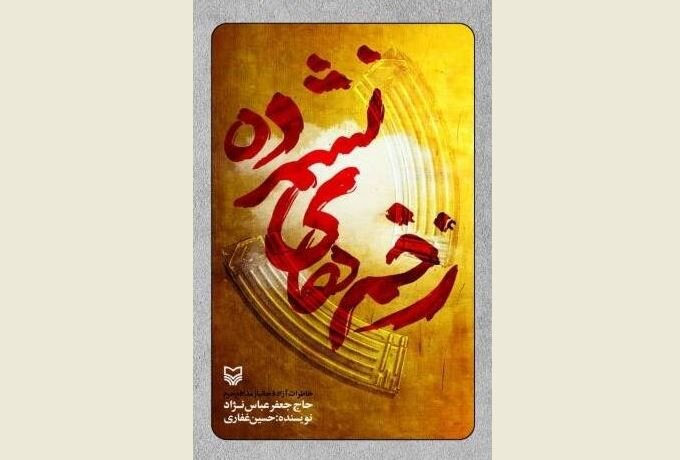"Countless Wounds," a story of a soldier from Faw to Syria

"Countless Wounds" is the title of Hussain Ghafari's most recent book, published by Soore Mehr, which tells the story of Haj Jafar Abbas Nejad's life from childhood to the Islamic revolution and the imposed war.
He was a devoted fighter during the Iran-Iraq war and the subsequent conflict with ISIS in Syria. He has never rested in his entire life and has always been on the battlefield.
* What inspired you to begin writing Haj Jafar Abbas Nejad's memoirs?
The Arts Center of Azerbaijan Province asked me to introduce them to someone who could tell them about his wartime experiences, so I introduced them to Haj Abbas because I knew him for many years. Interviews by friends began in June 2019, but unfortunately, Abbas Nejad passed away in March 2019, and because I knew his family, friends, and colleagues, I decided to write his book myself.
* These books actually express the martyrs' personal lives and address issues that have not been discussed much over the years. What effect does this have on the audience?
Abbas Nejad was born in 1966. He joined the war as a teenager and was taken prisoner during one of the operations. But then, as soon as he was free and came back to Iran, he joined another war in Syria. He spends his entire life fighting and eventually dies as a result of his captivity in Iraq and the Syrian war. Such a unique individual would be undoubtedly an excellent role model for the audience. Unfortunately, I can't say that this book accurately portrays Hajj Abbas' character because many details were left out due to the secrecy of the Syrian operations and his death in the middle of the project. This book is simply a reflection of his life experience as a military man.
* How useful can memoir writing be for novelists?
It would be extremely beneficial to the novelist if they could fully describe the person's character when telling his memoirs, and all of that person's emotions and thoughts must be fully interpreted.
* Do screenwriters and novelists use diaries from real people for their work?
Because no one has complete information about a fighter or martyr, the majority of films and novels portray a broad view of their lives. That writer or director is only interested in the subject from his perspective, not how that person actually lived. As a result, the film or novel is not the real thing, and it is ultimately unsatisfactory.
